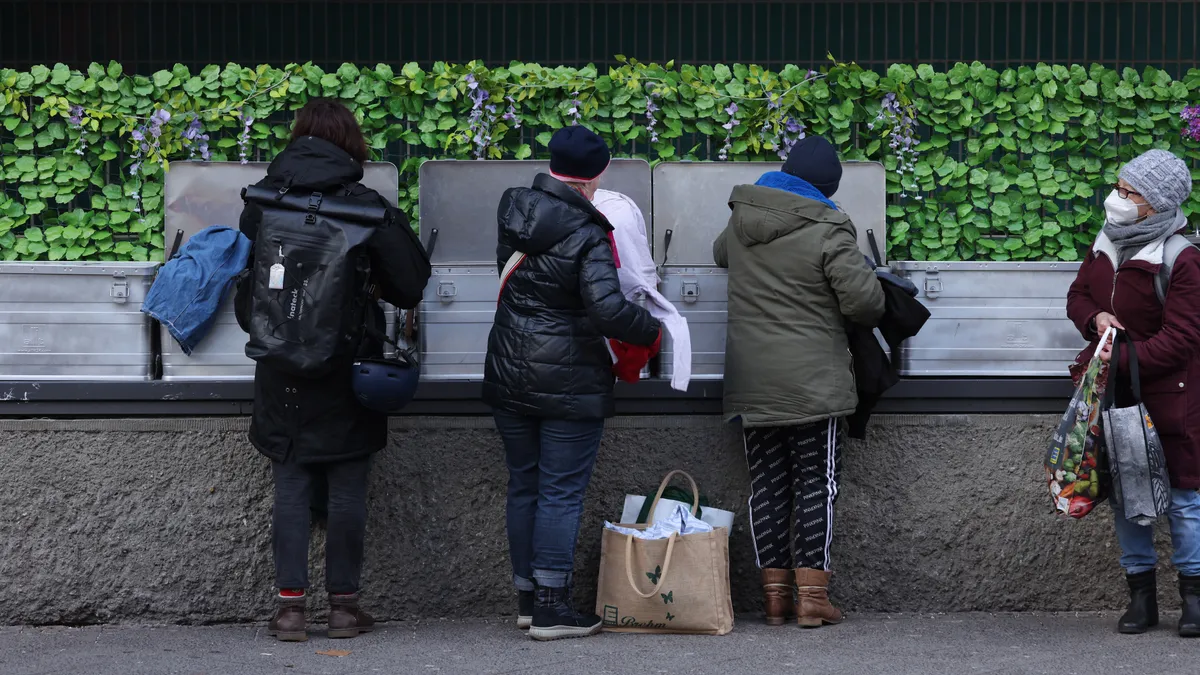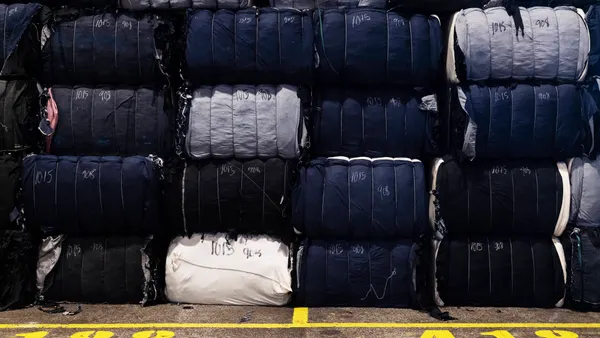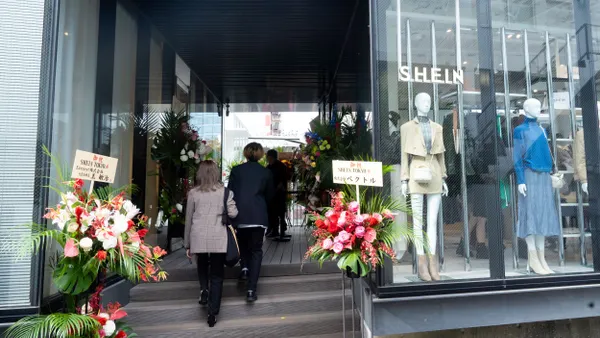Dive Brief:
- Nonprofit organization Changing Markets Foundation found that 76% of clothing donated to some major clothing stores in the EU and the U.K. were mishandled, per a study released in July.
- The report used Apple AirTags to track the trajectory of 21 “perfect condition” items given to 10 companies, including H&M, Zara, Primark, Nike, The North Face and Uniqlo. It found that a majority of the donated items, meant for reuse or recycling, were instead destroyed, abandoned or shipped to Democratic Republic of the Congo, Mauritania and Mali.
- While five donated items did end up in a second-hand shop or resold to a customer in the same continent where it was initially deposited, only one of those was resold in the same country. Some of those items were shipped as far as 2,650 kilometers, or about 1647 miles, over the course of six months, before reaching a thrift shop.
Dive Insight:
Although the study, titled ‘Take-back Trickery,’ was relatively small in scale, Changing Markets nonetheless stated it was the largest tracking investigation of its kind.
The study, conducted between August 2022 and July 2023 in Belgium, France, Germany and the U.K., tracked items donated to H&M, Zara, C&A, Primark, Nike, Boohoo, New Look, The North Face, Uniqlo and M&S. Items deemed suitable for reuse were returned to brands using their own take-back methods.
“The promises made by H&M, C&A and Primark are yet another greenwashing trick on customers,” Urska Trunk, Changing Markets campaign manager, said in a release. “Our investigation suggests that items in perfect condition are mostly destroyed, stuck in the system or shipped across the world to countries that are least able to deal with the vast torrent of used clothing from Europe. The schemes add insult to injury by offering customers vouchers, discounts or points to buy more clothing, amplifying the fast fashion model that is overflowing with waste.”
While Netherlands-based organization Changing Markets stated it did not investigate take-back schemes in stores outside the specific regions in its current report, it said in its release that “the low value of most fast fashion clothing means that most used clothing entering take-back schemes run by highstreet retailers throughout Europe is also likely to be destroyed, shredded or left in warehouses.” Additionally, the organization called on the European Parliament to strengthen its laws on these issues.
While EU member states are working on legislation to require large companies to improve their labor and environmental practices, Changing Markets said the current legislation to combat waste rules, fast fashion and end-of-life processes doesn’t go far enough.
“EU rules are a golden opportunity to improve take-back schemes across Europe,” said Trunk. “But the European Parliament and member states need to strengthen a proposal by the European Commission. They should set binding recycling and reuse targets to shut down the kind of mistreatment of clothes our investigation has uncovered, and agree on a high end-of-life fee on clothing to really drive the production towards better quality, longer lasting garments. Because fast fashion is addicted to cheap, plastic-based fibres, they should also tax those fibres.”
The release stated that France and the Netherlands already have legally binding reuse and recycling targets for used clothing, and 68% of fashion brands served by Changing Markets said they supported ambitious reuse and recycling targets.
Meanwhile, the World Economic Forum estimated in 2016 that the number of garments produced annually had reached 150 billion, and a 2020 review paper in the scientific journal “Nature Reviews Earth and Environment” indicated that fashion produces more than 92 million tons of waste per year, with only 1% coming back as new clothing.











